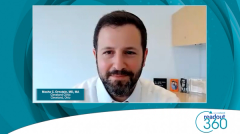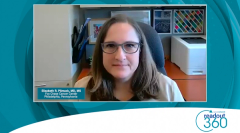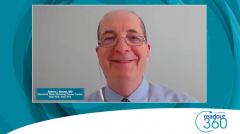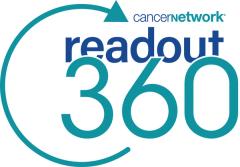
Data From KCRS 2023: The CLEAR and TRAVERSE Studies in Advanced Clear Cell RCC
Centering discussion on the KCRS 2023 annual meeting, experts in renal cell carcinoma elucidate data from the CLEAR and TRAVERSE studies in clear cell disease.
Episodes in this series

Transcript:
Brian I. Rini, MD, FASCO: Hi. Welcome to the CancerNetworkâ Readout 360, “Evolving Treatment of Renal Cell Carcinoma: Highlights From KCRS and ASCO 2023.” I’m Brian Rini, a GU [genitourinary] medical oncologist and professor of medicine at Vanderbilt University. I’m pleased to be joined today by a distinguished faculty panel, and I’ll let them introduce themselves, starting with Dr Ornstein.
Moshe C. Ornstein, MD, MA: Hi, I’m Moshe Ornstein. I’m a GU oncologist at Cleveland Clinic. I’m glad to be here.
Brian I. Rini, MD, FASCO: Dr Plimack.
Elizabeth R. Plimack, MD, MS: I’m Betsy Plimack, a GU medical oncologist at Fox Chase Cancer Center in Philadelphia, [Pennsylvania].
Brian I. Rini, MD, FASCO: Thank you. And Dr Motzer.
Robert J. Motzer, MD: I am Bob Motzer. I’m a medical oncologist and attending at Memorial Sloan Kettering Cancer Center [in New York, New York].
Brian I. Rini, MD, FASCO: Thank you all for joining. We’re going to run through some data from these recent meetings that I know you’re all familiar with and were involved with. And then, mostly try to have a discussion around the impact of these data on clinical practice. We’ll start with clear cell kidney cancer. And there were some frontline updates presented at the recent KCRS [Kidney Cancer Research Summit] meeting. Before we get to that, we’re all familiar with NCCN [National Comprehensive Cancer Network] guidelines for kidney cancer. Many of you were on the panel. And this breaks it down by IMDC [International mRCC Database Consortium] risk group into favorable and poor and intermediate risk. And it really just lists the regimens that we’ll talk about, largely immune-based tablets as the preferred regimen, and then moving into single-agent TKI [tyrosine kinase inhibitor] in some circumstances or even surveillance, but [it] really just lays out the landscape of what’s available in advanced RCC [renal cell carcinoma].
The first data we’ll talk about, actually, Dr Motzer presented at KCRS, and this is a 4-year follow-up of the CLEAR study [NCT02811861], which was lenvatinib plus pembrolizumab compared with sunitinib in frontline kidney cancer. It was the study upon which this regimen became a standard of care in this disease. And we’re starting to see longer follow-ups for all these regimens, including this particular one. As I mentioned, this was lenvatinib/pembrolizumab compared with sunitinib; there was also a lenvatinib/everolimus arm that we won’t talk too much about. It was there for regulatory reasons—a large phase 3 trial that was similar to the other trials in frontline advanced clear cell kidney cancer looking at both PFS [progression-free survival] and OS [overall survival]. And we know from prior presentations and publications that this regimen showed statistically significant benefits in response rate, PFS, and OS compared to frontline sunitinib. As mentioned…these are the data upon which it was FDA approved and became a standard of care.
And what was presented at KCRS was a 4-year update that had been presented at ASCO [American Society of Clinical Oncology], as well as some additional subset updates in other…parts of the data. So, one of the things that was looked at was…depth of response. And this has been looked at across trials trying to get a sense of: Does more tumor shrinkage in individual patients lead to better outcomes? When you look at the risk group categories of patients who achieved this, it’s about a third of patients who are favorable risk and about two-thirds are intermediate or poor risk. Again, really just reflecting...the number of patients enrolled in the trial. I believe there were about 30% [of patients with] favorable risk. And this and other data sets have shown us that, maybe not surprisingly, patients who achieve deeper responses, ie, greater percent reduction, have better outcomes, right? They have better cancer control, they’re more susceptible to therapy, and tend to have more durable long-term outcomes, really, in my opinion, without a threshold. I think the deeper the response, the better.
I think some of the important data that [are] coming out of these long-term outcomes are duration of response. And this was presented as well. So, if you look at the 65 patients who achieved RECIST complete response to this regimen, the median duration of response was about 44 months, about 3.5 years. The duration of the partial response was about 20 months, so about half of that. And again, if you look at categories of tumor shrinkage, patients with greater tumor shrinkage had longer durations of response up to and including complete response. And this is really important to start seeing these absolute numbers because we all sit with patients in clinic who achieve certain degrees of PR, who achieve CRs, hopefully. And it’s nice to have some numbers because they often ask, How long is this going to last? How long am I going to be on therapy? And we can start to…compare these data with other doublet regimens. They’ve not all been reported the same way, but we can start to compare these data as we’re thinking about long-term outcome in patients. And then the [OS] for these different depths of response was presented. And as mentioned, the greater the percentage shrinkage generally, the longer patients live. And this...makes intuitive sense since it’s an accumulating cancer burden that becomes life-threatening to patients.…
Before we go to discussion, the other quick study that I’ll mention that was presented at KCRS was the TRAVERSE study [NCT03518034]. And this was a phase 2 study looking at the ALLO-316 compound in kidney cancer. And this is an off the shelf CAR-T [chimeric antigen receptor T-cell] agent. As you may know, CAR Ts are in wide use in heme [hematologic] malignancies and they’ve…slowly been trickling into study in solid tumor malignancies. There [are] not a lot of data in kidney cancer. I believe there [are] only 1 or 2 products, maybe a couple of abstracts around CAR-T cells. But ...we all…hold out hope that there could be the impact on solid tumors and kidney cancer that we’ve seen in heme malignancies. And so, this was just an early report of this CD70-targeting CAR T-cell agent in kidney cancer. This was a dose-escalation study. There was a conditioning regimen of fludarabine cyclophosphamide, which is typical. And there were 19 patients enrolled across 3 dose levels.
What was seen in terms of safety was that there was acceptable and expected toxicity, relatively low amounts of grade 3 toxicity. There were 2 grade 3 neurotoxicities and some cytokine release syndrome, although mostly low grade. And the dose exploration of this particular regimen is continuing. In the 18 patients evaluable for efficacy, the response rate was 17%. It went up to 30%, or 3 of 10 patients, who had CD70-expressing RCC, which you would imagine might enrich for response. So pretty early days on both efficacy and toxicity, but nice to see that CAR T cells are being studied in this disease and really across solid tumors.
Transcript is AI-generated and edited for clarity and readability.
Newsletter
Stay up to date on recent advances in the multidisciplinary approach to cancer.









































